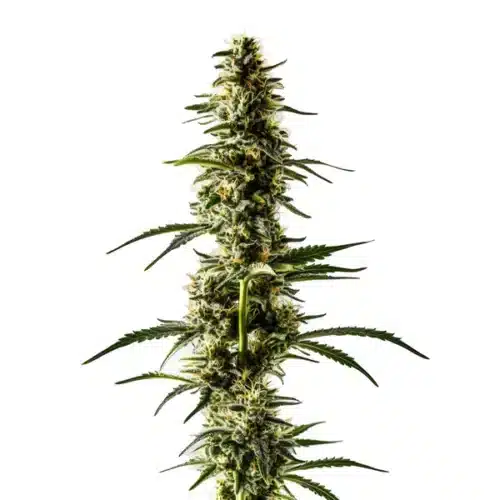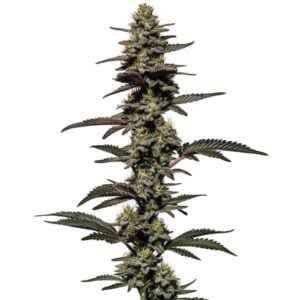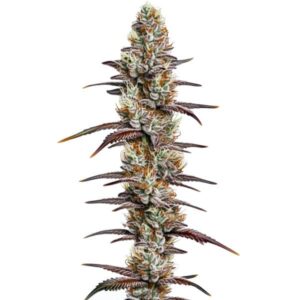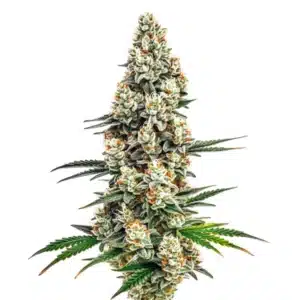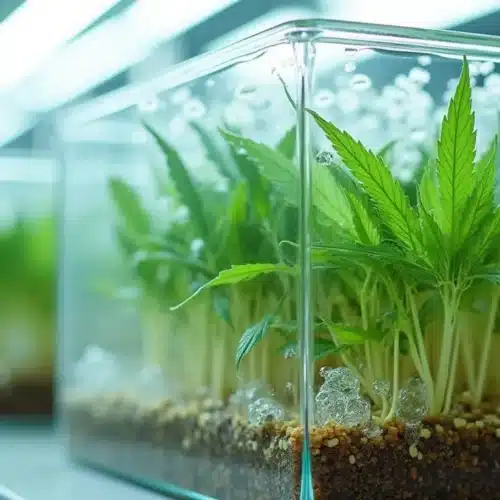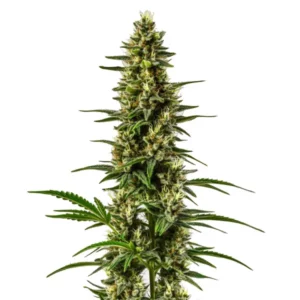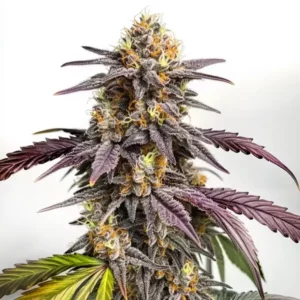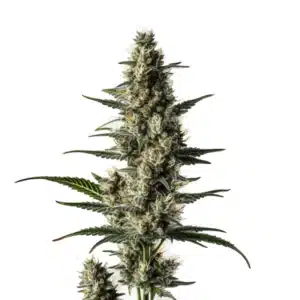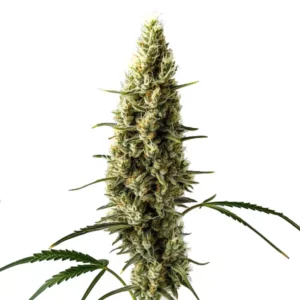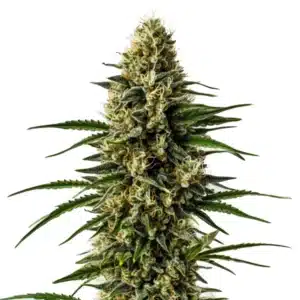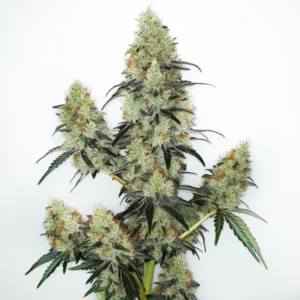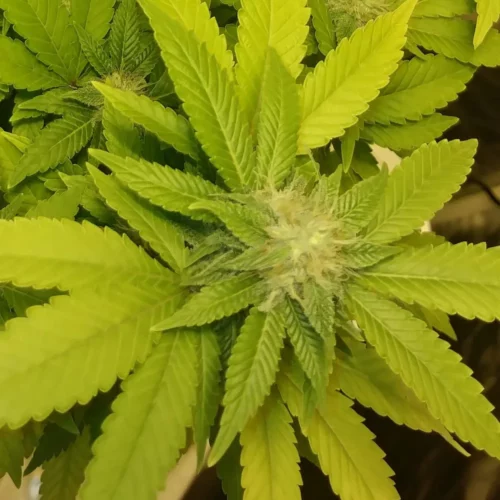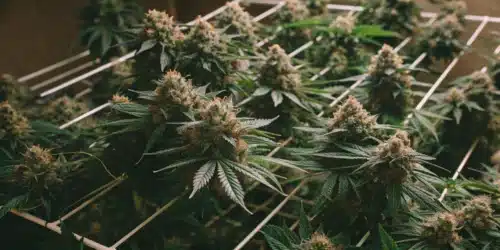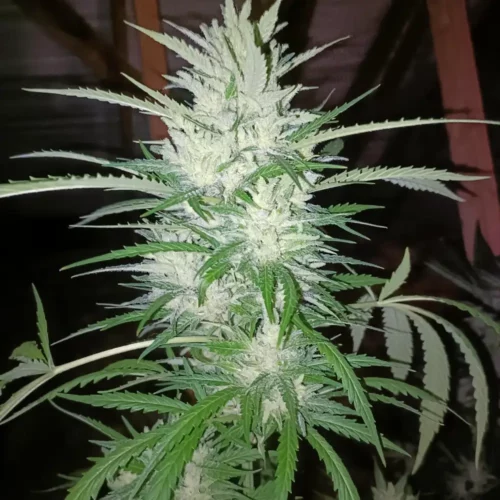Lemon Skunk Weed Strain Description
Lemon Skunk Strain is a hybrid cannabis strain that has quickly become a favorite among cannabis enthusiasts for its refreshing citrusy aroma and potent effects. This strain is a cross between Original Skunk and Citral, resulting in a hybrid that leans towards both Indica and Sativa characteristics.
It features dense buds that are light green with streaks of yellow, highlighting its lemon-inspired heritage. The buds are coated in a thick layer of trichomes, giving them a frosty and sticky appearance. The aroma is where Lemon Skunk Weed Strain truly shines, boasting strong citrus notes combined with earthy undertones, making it a delightful strain for those who enjoy refreshing flavors.
Recommended Strains
Lemon Skunk
 THC: 15 - 19%
THC: 15 - 19% Type of seed: Feminized
Type of seed: Feminized Phenotype: Mostly Hybrid
Phenotype: Mostly Hybrid Day to flower: 8 - 10 weeks
Day to flower: 8 - 10 weeks
With a THC content ranging from 15% to 19%, this strain delivers a calming and sedative effect that is perfect for unwinding after a long day. Whether used recreationally or for medicinal purposes, its balanced effects make it versatile and appealing to a wide range of cannabis users.
Promos & Deals
Environmental Requirements for Growing Lemon Skunk Weed Strain
Lemon Skunk Seeds thrives in a controlled environment where temperature and humidity are closely monitored. This strain prefers a temperate climate, with daytime temperatures ranging between 70-80°F (21-27°C) and slightly cooler at night. Maintaining consistent conditions helps to avoid stress and optimize the plant’s growth.
Humidity plays a key role in this strain’s growth. During the vegetative stage, humidity should be kept between 60-70%, while during the flowering stage, lowering the humidity to around 40-50% helps prevent mold and mildew from developing on the buds. This balance ensures healthy growth and improves yields.
While this strain can be grown outdoors, it thrives best in a controlled indoor setting. However, if you’re interested in a lemon skunk outdoor grow, it requires a warm and sunny environment, and growers in cooler climates should consider using a greenhouse to extend the growing season. When planning your lemon skunk outdoor grow, choosing the right environment is crucial to ensuring optimal results.
Setting Up The Growing Cannabis Space
Indoor Cannabis Cultivation
When cultivating Lemon Skunk Weed Strain indoors, it’s important to provide the right environment for the plants to flourish. A well-ventilated grow tent with proper air circulation is essential for keeping the plants healthy. Use a carbon filter to manage the pungent citrus aroma during the lemon skunk flower stage.
Light is another critical component. High-quality LED grow lights are recommended for this strain, as they provide the necessary intensity and spectrum for growth. During the vegetative stage, set a light cycle of 18-20 hours of light per day, switching to 12 hours of light and 12 hours of darkness when flowering begins.
Choose a well-draining medium such as a high-quality soil mix or a hydroponic system. Ensure the pH levels are maintained between 6.0-6.5 to optimize nutrient uptake. Regularly check the plants for signs of nutrient deficiency or excess to ensure they remain healthy and vigorous.
Outdoor Cannabis Cultivation
Outdoors, Lemon Skunk Weed Strain performs best in regions with warm, sunny climates. It requires ample sunlight and well-draining soil rich in organic matter to thrive. Using fabric pots or large containers can help with root development and allow for better control over the growing medium.
Given the heavy colas that this strain can produce, it’s a good idea to use stakes or trellises to support the branches. This helps prevent breakage and ensures proper air circulation around the plant, reducing the risk of mold or pest infestations.
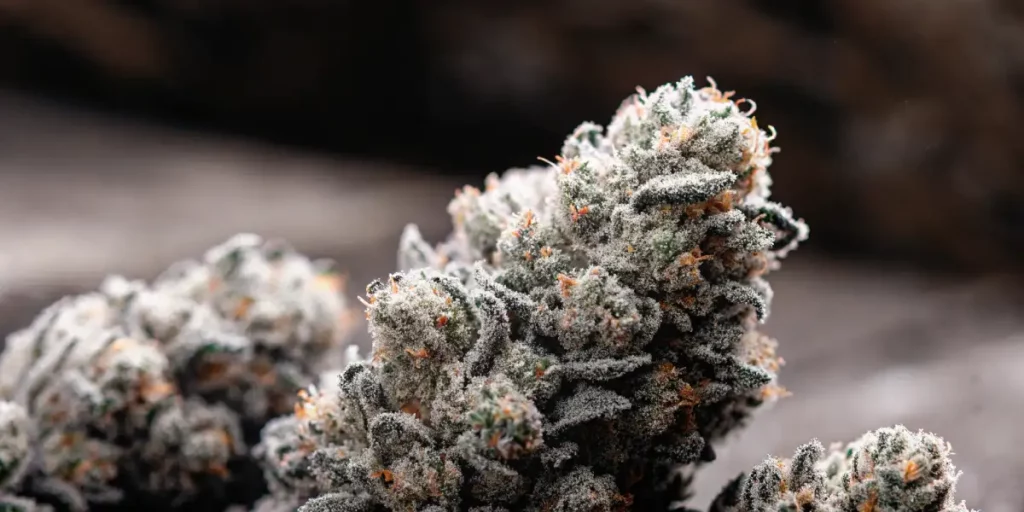
Propagation and Germination of Lemon Skunk Weed Strain
Successfully germinating Lemon Skunk Weed Strain Weed seeds is the first step towards a bountiful harvest. Using high-quality feminized seeds from a reputable seed bank ensures the best start. Follow these steps to maximize your germination rates:
- Soak the seeds in distilled water for 24-48 hours until they crack and reveal taproots.
- Transfer the germinated seeds to a damp paper towel, and place them in a warm, dark environment.
- Once the taproots are about a quarter inch long, carefully plant them in your chosen growing medium—preferably seedling trays or small pots filled with light, aerated soil.
- Keep the temperature between 75-80°F (24-27°C) and maintain a humidity level around 60-70% during the germination phase.
As the seedlings develop, ensure they are getting indirect light initially, gradually increasing light intensity as the plants grow stronger. Transplant the seedlings into larger pots once they have developed a strong root system.
Vegetative Phase of Lemon Skunk Weed Seeds
The vegetative phase is crucial for Lemon Skunk Weed Strain’s development, as this is when the plant establishes its structure and foliage. Proper care during this phase lays the foundation for a successful flowering feminized lemon stage, leading to a stronger and more productive plant overall.
Lighting: Ensure your plants receive 18-20 hours of light per day to promote vigorous vegetative growth. LED or HPS lights are ideal to provide the necessary intensity for healthy development.
Nutrition: Lemon Skunk Weed Strain thrives on nitrogen-heavy nutrients during this phase. A balanced fertilizer with a ratio of 3-1-2 (N-P-K) supports leafy growth. Make sure to monitor for nutrient deficiencies, as the plants may show signs of stress if not properly fed.
Training: Techniques like low-stress training (LST) and topping can help create an even canopy and improve light distribution, leading to better bud development during the flowering stage.
Flowering Phase of Lemon Skunk Weed Strain
The flowering phase is when Lemon Skunk Weed Strain starts to produce its characteristic citrusy buds. This phase typically lasts between 8-10 weeks, depending on the growing conditions and the specific phenotype.
Lighting: Switch the light cycle to 12 hours of light and 12 hours of darkness to initiate the lemon skunk flowering time. Ensure the plants receive intense light to maximize bud development and resin production.
Nutrient Shift: During this phase, reduce nitrogen and increase phosphorus and potassium in your nutrient solution. These nutrients are essential for healthy bud development and overall yield optimization. Lemon Skunk Weed Strain also responds well to bloom boosters that help increase flower density.
Cannabis Fertilization and Nutrition
Lemon Skunk Weed Strain benefits from a balanced nutrient regimen throughout its growth cycle. During the vegetative stage, a nutrient solution high in nitrogen promotes robust leaf and stem growth. As the plant transitions to the flowering stage, phosphorus and potassium become more critical, helping the plant develop dense, potent buds.
Supplements like calcium and magnesium can enhance overall plant health and prevent common deficiencies. During the final weeks of flowering, flushing the plants with clean water helps remove any excess salts and improves the flavor of the final product.
Pest and Disease Control for Cannabis Growing
Lemon Skunk Weed Strain is relatively resilient, but like all cannabis strains, it can still be susceptible to pests and diseases. Regular inspections and preventive measures can help keep your plants healthy.
Common pests like spider mites, aphids, and thrips can be controlled using organic pesticides or introducing beneficial insects such as ladybugs. Keeping the grow space clean and ensuring good airflow also helps reduce the risk of pests and fungal diseases like powdery mildew.
Harvesting and Curing for Cannabis Growing
Harvesting this strain at the right time is essential to achieve the best flavor and potency. Monitor the trichomes with a magnifying glass, looking for a milky appearance with some amber trichomes, which indicates peak cannabinoid content.
Once harvested, hang the buds in a dark, cool room with good ventilation. Keep the temperature around 60-70°F (15-21°C) and maintain humidity levels around 50-60%. The drying process typically takes 7-14 days, depending on the environmental conditions.
After drying, cure the buds in airtight glass jars for at least two weeks, burping the jars daily to release excess moisture. Proper curing enhances the flavor, aroma, and smoothness of the buds.
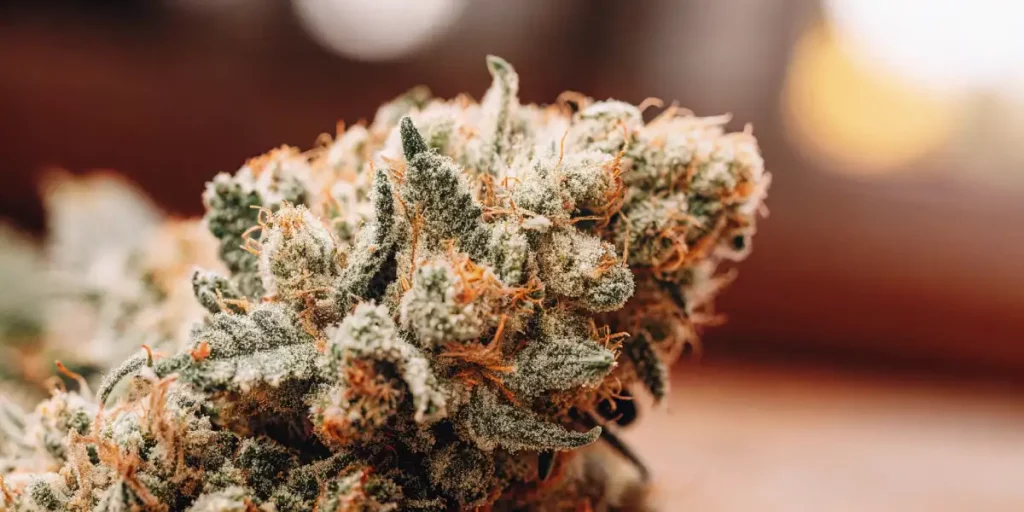
Is Lemon Skunk Weed Strain Indica or Sativa?
Lemon Skunk Weed Strain is a hybrid with balanced characteristics of both Indica and Sativa. It offers the best of both worlds, providing uplifting cerebral effects alongside a calming body high, making it suitable for a wide variety of cannabis users.
Advantages of Lemon Skunk Weed Strain
- Distinct lemon flavor and aroma that appeals to a wide range of users.
- Balanced effects suitable for both medicinal and recreational use.
- Resilient and beginner-friendly, making it ideal for growers of all experience levels.
- Relatively short flowering time of 8-10 weeks.
- Good resistance to common pests and diseases.
Disadvantages
- Strong aroma during flowering may require odor control methods.
- Heavy branches may need support, especially during the flowering phase.
- May require precise nutrient management to avoid deficiencies.
Similar Strains to Lemon Skunk Weed Strain
- Super Lemon Haze: Known for its intense lemon flavor and uplifting effects, Super Lemon Haze shares many similarities with this strain, making it a great alternative.
- Lemon Tree: Another citrus-heavy strain, Lemon Tree offers a balanced hybrid effect with similar euphoric and relaxing qualities.
- Citral Glue: With a mix of Skunk and Citral genetics, Citral Glue delivers a comparable citrusy profile with potent hybrid effects.
Tips for Professional Growers
Professional growers looking to optimize this strain production should consider advanced cultivation techniques like hydroponics or aeroponics. These methods allow for better control of nutrient delivery and promote faster growth.
In larger grow operations, employing CO2 enrichment can significantly enhance plant growth and increase yields. Additionally, automated irrigation and climate control systems will help maintain consistency, reduce manual labor, and improve the overall quality of the harvest.
Pruning and defoliation are important techniques to maximize light penetration and airflow, especially in dense canopies. This minimizes the risk of mold and helps the plants focus their energy on producing large, resinous buds. Also, keeping a close eye on nutrient levels and conducting regular pH checks will prevent nutrient lockout or deficiency, ensuring a successful harvest.
Frequently Asked Questions about Lemon Skunk Weed Strain
How strong is Lemon Skunk Weed Strain?
This strain is a medium-THC strain, with THC levels ranging between 15% and 19%, making it potent enough for both recreational and medicinal users.
What terpenes are dominant in Lemon Skunk Weed Strain?
This strain features dominant terpenes such as limonene, which gives it a strong lemon scent, along with beta-caryophyllene and pinene for additional citrus and earthy notes.
Is Lemon Skunk Weed Strain suitable for beginner growers?
Yes, Lemon Skunk Weed Strain is a relatively easy strain to grow, making it ideal for beginners. It has good resistance to pests and common diseases, and its short flowering time makes it manageable for novice cultivators.
How long does it take for Lemon Skunk Weed Strain to flower?
This strain typically flowers within 8 to 10 weeks. However, the exact time may vary depending on the growing environment and specific phenotype.
What are the medical benefits of Lemon Skunk Weed Strain?
This strain is known for its calming and relaxing effects, making it useful for treating conditions such as anxiety, stress, and insomnia. Its anti-inflammatory properties also make it beneficial for pain relief.

